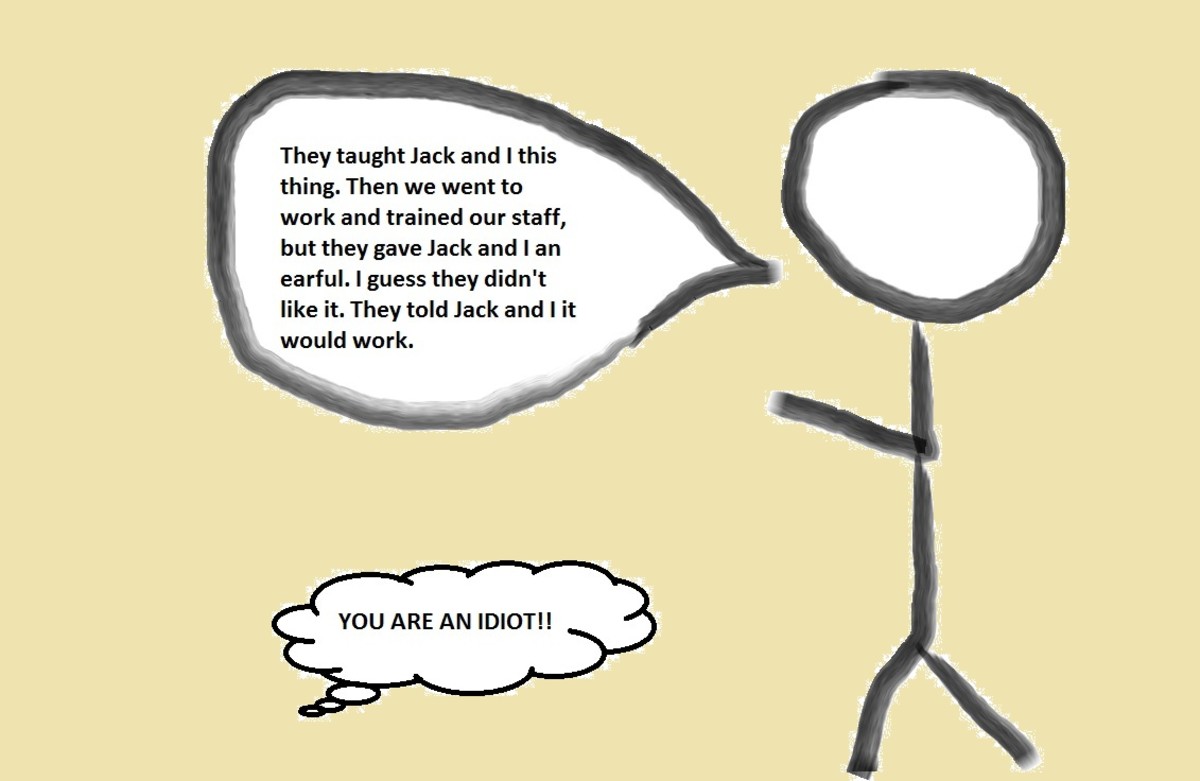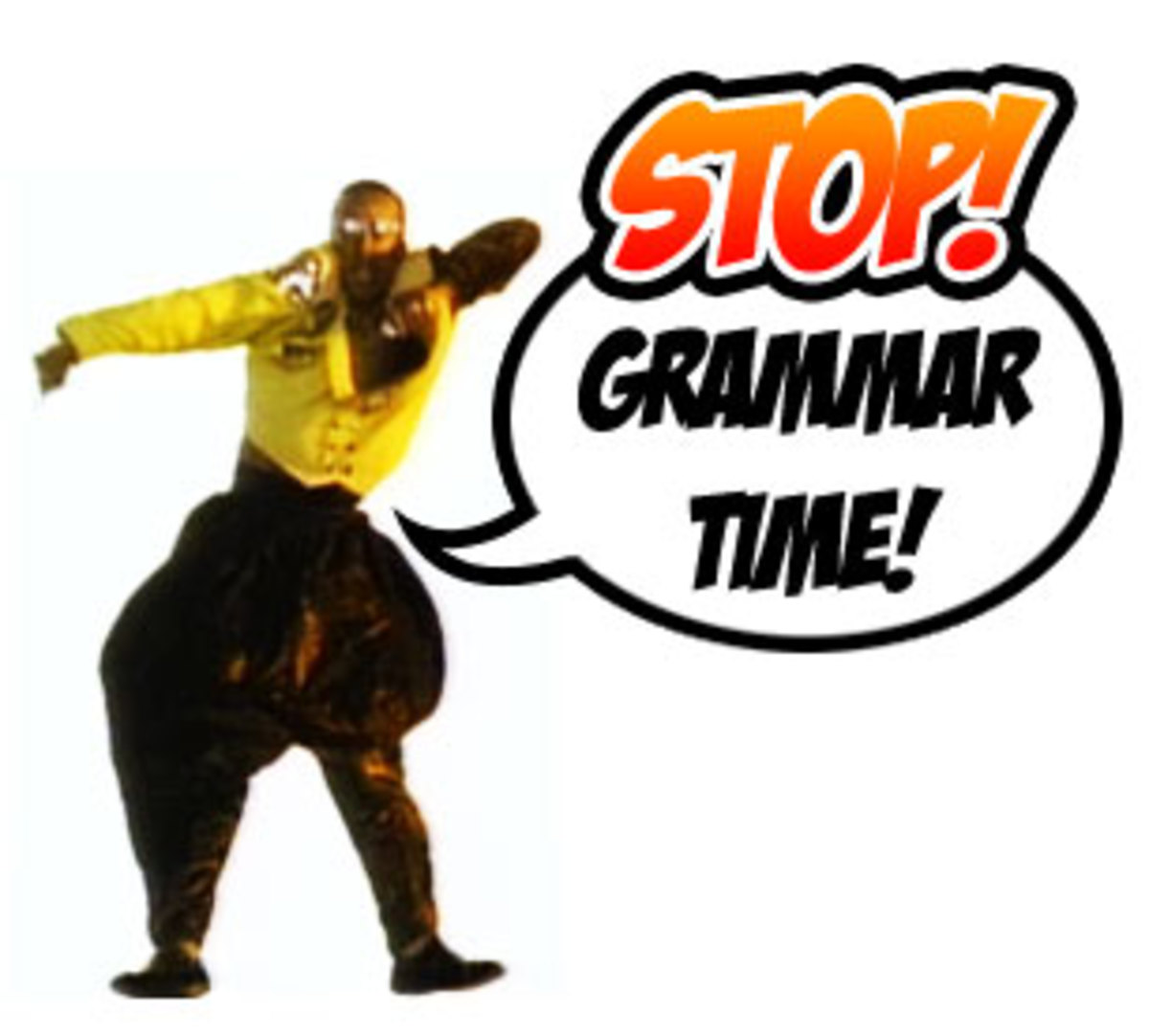Dangling Modifiers and Dangling Participles

Dangling Modifiers/Participles
What is a dangling modifier? Is a dangling modifier the same as a dangling participle?
A dangling modifier can also be known as a dangling participle, so the two terms basically mean the same thing. But before we take a look at the meaning of a dangling modifier, let us first of all find out what the meaning of a modifier is.
A modifier can be defined as a word or group of words whose job is to describe, modify, limit, or qualify the meaning of another word or group of words in a given sentence. It therefore means that a modifier can be any of the following:
- A determiner – a word used before a noun in order to show which thing is meant
- An adjective – a word that qualifies a noun or pronoun
- A participle – a verb that is being used as an adjective. We have the Present Participle and the Past Participle. Examples: the burning candle, the speeding car, the broken chair, etc.
It is very important that the modifier in the sentence clearly points to the word or group of words it is describing or talking about.
Now that we have a good idea what modifiers are all about, let us now turn our attention to the topic of the day Dangling Modifiers or Dangling Participles. Like I said in the begining of the article - some call them the dangling modifiers whereas others call them the dangling participles – both terms are correct. In this lesson, we are going to use both terms in our explanation, so don't get surprised or puzzled if you see us using 'dangling modifier' in one sentence and in another sentence you see us using 'dangling participle'.
What is a dangling participle?
A dangling participle is simply a participle or a modifier that modifies or targets the wrong subject in a given sentence.
Another simple definition of a dangling participle is: a participial phrase or modifier that is wrongly used in a sentence such that it doesn’t clearly point towards the word or group of words that it is describing but rather targets an unintended word.
In the brief definition above, I made mention of the term participial phrase. I know this may lead to some readers wondering what a participial phrase is. Well, you don’t need to worry anymore because here comes the definition: A participial phrase is a phrase that contains a participle and which is used to modify or describe the subject of the sentence it attaches itself to.
Example:
While smoking a pipe, my cat sat with me on the sofa.
In the sentence above, the participle or the participial phrase or the modifier is “while smoking a pipe”, but you can clearly see that the modifier is describing the wrong word “cat”. From the sentence it appears that the cat was the one smoking a pipe. But we both know that is crazy! We both know that it is the writer that was smoking the pipe and not his cat.
The sentence above is a clear example of a dangling participle or a dangling modifier. We can correct the error of the dangling participle/modifier in the sentence above by making sure that the modifier in the sentence actually points clearly to the word that it is describing. And how do we do that? We do that by bringing the word that the modifier is describing very close to it. Let us see how we can correct the sentence above.
Dangling participle/modifier: While smoking a pipe, my cat sat with me on the sofa.
Correct version: While smoking a pipe, I sat with my cat on the sofa.
You notice that in the corrected version of the sentence, we got rid of the dangling participle/modifier by bringing the word that the modifier describes “I” closer to it. I was the one smoking a pipe and not my cat!
NOTE: A modifier or participle that opens a sentence must always be followed immediately by the word it is describing. If you fail to do this, then you are going to end up with a case of dangling participle or dangling modifier. This is something that you do not want happening to you. Not only do cases of dangling participles make your sentences strange, but they can be quite costly when writing English Language examinations for instance. You can easily lose vital marks for making these grammatical errors.
Let us take a look at another sentence with a dangling participle/modifier problem:
Swimming in the pool, a rock cut John’s foot.
The sentence above is grammatically incorrect simply because it is suffering from a dangling participle/modifier problem. The modifier that opens the sentence is targeting the wrong thing “a rock”. If I were to ask you who was swimming in the pool, you’d certainly not tell me a rock. Obviously it is John that was swimming in the pool. And since the word “John” failed to immediately follow the modifier that opened the sentence, the modifier became a dangling one, which of course made the sentence to take an unintended meaning. Basically the modifier/participial phrase targeted the wrong word.
Take a look at the sentence again: Swimming in the pool, a rock cut John’s foot.
When you look at the sentence above, it seems that the “rock” was the one swimming in the pool, which obviously isn’t what the writer meant. The writer meant “John was swimming in the pool”.
We therefore need to work on this sentence again in order to make it grammatically correct. We can correct this error of dangling participle/modifier, by introducing the word “John” closer to the modifier “Swimming in the pool”.
The grammatically correct version will therefore be:
Swimming in the pool, John cut his foot on a rock.
Or
When John was swimming in the pool, he cut his foot on a rock.
We fixed the problem of dangling participle/modifier by adding the right subject just after the modifier or the participial phrase.
Some more examples
Below is a simple table containing more examples of sentences containing dangling modifiers or dangling participles and their grammatically correct versions:
Sentences with dangling modifiers/participles and their corrected versions
Sentence with dangling modifier/participle
| Sentence without dangling modifier/participle
|
|---|---|
While eating my meal, six mosquitoes bit me.
| While eating my meal, I was bitten by six mosquitoes.
|
Rushing to school, my keys got lost.
| Rushing to school, I lost my keys.
|
Getting out of bed, the floor was so cold that I jumped back into bed.
| Getting out of bed, I found the floor so cold that I jumped back into bed.
|
Taking a walk in the park, the pain in my head started reducing.
| While taking a walk in the park, I felt the pain in my head reduce.
|
Climbing to the top of the hill, the house stood ahead of us.
| Climbing to the top of the hill, we saw the house standing ahead of us.
|
Living all alone, time moved very slowly.
| Living all alone, I noticed that time moved very slowly.
|
Painting the ceiling, the paint stained my shirt.
| While painting the ceiling, I stained my shirt with the paint.
|
Reading my book, it started raining heavily.
| While I was reading my book, it started raining heavily.
|
Journeying into the heart of the desert, the weather became hotter and hotter.
| While we were journeying into the heart of the desert, we noticed that the weather became hotter and hotter.
|
Struggling to get into the moving bus, my wallet got lost.
| Struggling to get into the moving bus, I lost my wallet.
|








